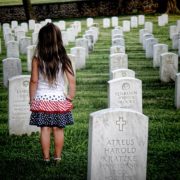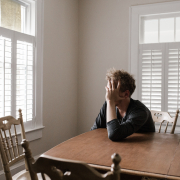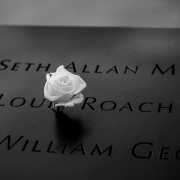Questions to ask a Funeral Director
Planning and preparing a funeral of your loved one can be an emotional time, one you may have never faced before. A professional Funeral Director can answer your questions to help you understand the final steps and procedures with any rituals and ceremonies of the funeral. Preparing for the funeral of your loved one includes several steps.
Questions you may be asking your Funeral Director
One of the most important queries you need to know is the type of document you need before planning the funeral. You will be provided with a to-do list. If at all you have made up your mind to prepare an exclusive service you will need the following in order to proceed further:
- Birth certificate,
- Marriage certificate,
- Documents to prepare the funeral,
- Latest Will and Testament along with any codicil.
The funeral director will guide you and answer any questions that will make the funeral preparations easier for you and your family.
- The most common question that is often a concern is the cost.
An important question that concerns everyone is the cost of the various parts of the ceremony. It is very important to pay special attention to the overall cost because things can only be planned after the budget is set. Keeping the budget in mind, special attention is given to the items that can be used within the said funds.
-
- What is embalming?
Temporarily preserving the body of a deceased person to prevent decomposition is embalming. It does sound scary to mummify a corpse. Doesn’t that sound familiar? The Egyptian society practiced preserving the human body by embalming centuries ago. This step becomes necessary when distant family and friends may take several days to arrive at the mourning venue.
-
- Is public viewing necessary?
Grief specialists believe that viewing the deceased serves the grief process by realizing that the person is dead. Public viewing is also part of multiple cultures and customs.
-
- What to do if a death occurs during the late hours or weekend?
Many funeral companies assist 24 hours a day and seven days a week. Professionals assist and support the grieving family and arrange the funeral services as advised and discussed by the family members.
-
- Is embalming compulsory? Why is it needed?
It certainly is not obligatory. There might be reasons and situations where it becomes necessary. Factors like:
- Arrival of distant relatives since time cannot be stopped.
- Health reasons where the deceased might have health issues that can worsen the skin condition requires embalming.
- Legal requirements that might take time to resolve.
- Embalming also becomes an obligation if the deceased is being transported to another country by air where the local laws have to be sorted.
- Is Cremation an alternative to a Funeral?
No, it’s not. It’s a substitute to entombment or earth burial for body’s final placement and that’s when a customary funeral service takes place.
-
- How are funeral costs covered for the indigent?
Besides the family, there are organizations that help the funeral to take place. Funeral directors know how to get various benefits for the indigent. They take in funds provided by agencies to assure the deceased has a decent burial. There is a gov’t fund as well.
There are additional questions one needs to know in this respect.
-
- Can we get a customized burial chamber?
There is an extensive array of customized choices one can opt that includes custom-made name plates and military emblems.
-
- Are cremated remains buried in vaults?
Obviously, for cremated remains urn or vase like vaults are available. These are specially designed to bury cremated remains.
-
- Are two cremations allowed to perform at the same time?
No, that is illegal and is not allowed. Most modern cremation chambers cannot accommodate more than one adult for the process to take place. Therefore, it’s practically impossible to perform multiple cremations at the same time.
-
- Is the family allowed to see the cremation process?
This is a question to ask the Funeral Director, each Province may have different procedures. It may be a part of funeral custom of some religious groups.
-
- How do Burial Chambers benefit the body?
Burial chambers are dry and clean. These are offered to people who hold strong dislike to bury their deceased in the ground. Besides that, the non-availability of the cemetery land is increasing. Burial chambers can be accommodated in less space.
Funeral Directors are good guides, supporters and listeners. They are experienced in supporting and assisting the bereaved in coping with the demise of their loved one. They are qualified and trained to answer all sorts of questions. They can respond to queries about grief and pain, have an eye to recognize if someone is facing difficulty in coping with the trauma thus suggest professional help. Tranquility Cremation and Funerals welcome your questions









